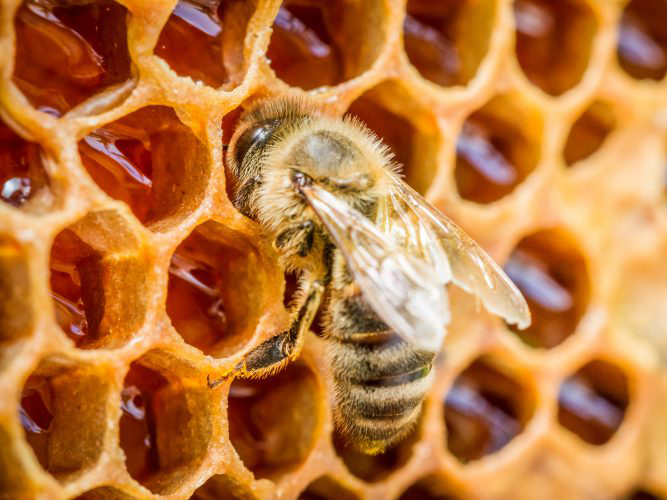Get Easy Health Digest™ in your inbox and don’t miss a thing when you subscribe today. Plus, get the free bonus report, Mother Nature’s Tips, Tricks and Remedies for Cholesterol, Blood Pressure & Blood Sugar as my way of saying welcome to the community!
Honey: The better sugar

Sugar is an addictive substance that wreaks havoc on your health. But honey is also a sugar. So is it really that much better for you?
Yes. A thousand times, yes. Honey is the original sugar, and the original healer. It’s been used by the oldest system of medicine on earth, Ayurveda from India, for more than 5,000 years.
One of the reasons honey is so much better is because it’s a more complex sugar. This means for your body to break it down, it will have to expend much more energy. That means your body is left to deal with far fewer calories.
Honey also contains trace elements — minerals and vitamins — gathered by bees when travelling from plant to plant. Because honey is not processed, these nutrients can actually benefit you nutritionally. And the clinical benefits of honey are mounting.
Raw honey applied topically to the skin causes healing and is now accepted as a standard of care as a topical antibacterial agent for treating wounds, burns and skin ulcers in many hospitals.
The sticky, sweet stuff has been observed to reduce inflammation, swelling and pain; act as an effective debridement; allow bandages to be removed painlessly and safely, which is beneficial to re-growing tissue; and produce rapid healing with minimal scarring.
In fact, in many cases honey has been shown to be superior to antibiotics and antiseptic therapy by working on infected lesions that were not responding to standard antibiotic and antiseptic treatment. A study published in the Cochrane Library in 2012 showed that honey may promote faster healing of mild or moderate burns than regular dressings.
It seems that honey helps to increase the rate of both new tissue growth and the removal of dead tissue around the wound.
This shouldn’t be surprising as honey’s anti-microbial properties have been documented in the world’s oldest medical literatures, and is now being recognized in modern medical journals.
So do yourself a huge favor. Keep natural honey on hand to satisfy your sweet tooth.
I keep a jar of raw, organic Manuka honey in my pantry because it has high levels of methylglyoxal, the antimicrobial that protects against infections and colds. But really, any dark honey is good. The “Journal of Apicultural Research” found that dark honey has less water and more antioxidants than light-colored honey.
It’s also a good idea to buy locally produced honey. It will contain pollen spores picked up by the bees from local plants. According to the journal “International Archives of Allergy & Immunology,” this can increase your immunity to locally induced allergies by building up your natural immunity against them.
One tip for buying pure, unadulterated honey that you will not learn from honey manufacturers is to look at the HMF (Hydroxymethylfurfural) level. Honey with too much HMF can mean it is adulterated with inverted sugars — i.e. white sugar or fructose.
These processed sugars are heated with acid, and industry then calls them “inverted sugars.” The heating creates HMF. Foods with added sugar or high fructose corn syrups can have levels of HMF up to 1,000 mg/kg. Look for a dark honey with less than 100 mg/kg of HMF.












